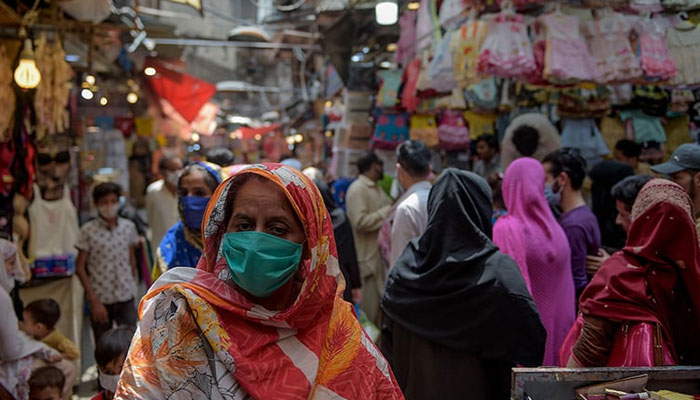Unaccountable discretion
LAHORE: Discretionary powers, especially when unaccountable, can significantly distort an economy, as seen in Pakistan. When the ruling elite and bureaucracy exercise excessive discretionary control, it leads to several negative economic consequences.
Unchecked discretion allows decision-makers to prioritize personal or political gain over national interests, fostering corruption. This results in inefficient resource allocation, where projects or industries favoured by the elite receive preferential treatment, regardless of their economic merit. Discretionary powers can lead to favouritism in awarding contracts, licences or access to resources, distorting market competition. In such environments, firms may focus on cultivating political connections rather than competing based on efficiency or innovation. This phenomenon is evident in Pakistan.
Many of our economic woes stem from these discretionary powers. When decisions are made at the whim of the elite or bureaucracy, economic policies become unpredictable. Frequent changes based on short-term interests erode investor confidence, deter long-term planning and destabilize the economy. This concentration of power within a select few weakens institutional checks and balances, leading to opaque governance. Such conditions hamper regulatory oversight, reduce policy transparency and diminish accountability, ultimately undermining economic growth and investor confidence.
Unaccountable discretionary power distorts the economy by diverting resources away from productive uses, weakening institutions and creating an environment where merit is secondary to political patronage. It also reinforces inequality, as the ruling class manipulates the system to accumulate wealth and power, leaving others behind.
We may celebrate some improvements in the economy as if a turnaround has been achieved. A sustainable growth trajectory typically requires several consistent improvements in macroeconomic indicators over a medium to long-term horizon of three to five years.
Stable or steadily increasing real GDP growth -- ideally between 4.0 per cent and 6.0 per cent for developing countries like Pakistan -- indicates rising economic activity and output. Our average growth over the last decade has barely reached 3.0 per cent. Inflation within manageable levels of 2.0 per cent to 6.0 per cent signals stable prices, benefitting both consumers and businesses.
We hope to achieve this target by June 2025. Higher rates of domestic and foreign investment reflect confidence in the economy’s future prospects, while savings rates should also rise in response to improved income stability.
A reduction in budget deficits and stable debt-to-GDP ratios are signs of responsible fiscal management. Unfortunately, we lag far behind comfortable levels in foreign investment, savings rates and budget deficits. Even our current account or reduction in trade deficits is managed through a restrictive import regime, and exports are not increasing sufficiently to support a more sustainable growth model.
In countries like Pakistan, total GDP alone is not an accurate indicator of overall economic health, particularly given our highly skewed wealth distribution. In Pakistan, the richest 10 per cent hold 80 per cent of the wealth, while the poorest 20 per cent control less than 5.0 per cent. This disparity means that our GDP figures provide a misleading picture of economic well-being. In this context, GDP growth tends to benefit the wealthy without generating significant trickle-down effects for poorer segments of society.
To ensure sustained growth, we need to strengthen institutions to reduce the discretionary powers of elites and bureaucrats. Ensuring transparency, accountability and consistency in economic policy is essential. Economic growth should not rely on one or two sectors; encouraging diversification (e.g., from agriculture to manufacturing and services) can make the economy more resilient to sector-specific downturns.
A strong legal framework and enforcement of property rights, contracts and regulatory standards create a fair and predictable business environment, boosting investor confidence and encouraging long-term investment. Facilitating access to affordable credit for small and medium-sized enterprises (SMEs) is crucial for spurring entrepreneurship and innovation, which are key drivers of sustained growth. However, all of this is contingent on eliminating unaccountable discretion.
-
 Why Travis Kelce Says Taylor Swift Has Made Him 'so Much Better'?
Why Travis Kelce Says Taylor Swift Has Made Him 'so Much Better'? -
 Halle Berry Credits This Hairstyle With Launching Her Acting Career
Halle Berry Credits This Hairstyle With Launching Her Acting Career -
 Hailee Steinfeld Spills Her 'no-phone' Rule With Husband Josh Allen
Hailee Steinfeld Spills Her 'no-phone' Rule With Husband Josh Allen -
 Bowen Yang Gets Honest About Post SNL Life: 'It’s An Adjustment'
Bowen Yang Gets Honest About Post SNL Life: 'It’s An Adjustment' -
 Charlize Theron Delivers Strong Message At 2026 Winter Olympics Opening Ceremony
Charlize Theron Delivers Strong Message At 2026 Winter Olympics Opening Ceremony -
 Lil Jon Reacts To Son Nathan Smith's Death: 'Devastated'
Lil Jon Reacts To Son Nathan Smith's Death: 'Devastated' -
 Bianca Censori Reveals Where She And Kanye West Stand On Having Children Together
Bianca Censori Reveals Where She And Kanye West Stand On Having Children Together -
 Taylor Swift Hypes Olympic Athletes In Surprise Video Message
Taylor Swift Hypes Olympic Athletes In Surprise Video Message -
 Timothy Busfield Charged With Four Counts Of Child Sexual Abuse
Timothy Busfield Charged With Four Counts Of Child Sexual Abuse -
 Amy Schumer Explains Why Her Sudden Photo Surge Is ‘not A Cry For Help’
Amy Schumer Explains Why Her Sudden Photo Surge Is ‘not A Cry For Help’ -
 Kanye West First Contacted Bianca Censori While In Marriage To Kim Kardashian?
Kanye West First Contacted Bianca Censori While In Marriage To Kim Kardashian? -
 Travis Kelce Reveals What His Nieces Really Do When He, Taylor Swift Visit
Travis Kelce Reveals What His Nieces Really Do When He, Taylor Swift Visit -
 Lola Young Makes Career Announcement After Stepping Back From Touring
Lola Young Makes Career Announcement After Stepping Back From Touring -
 Priyanka Chopra Shares Heartfelt Message For Nick Jonas
Priyanka Chopra Shares Heartfelt Message For Nick Jonas -
 Spotify, Major Labels File $13b Lawsuit Over Alleged Music Scraping
Spotify, Major Labels File $13b Lawsuit Over Alleged Music Scraping -
 Travis Kelce Opens Up About Being Backup Plan For His Nieces
Travis Kelce Opens Up About Being Backup Plan For His Nieces




